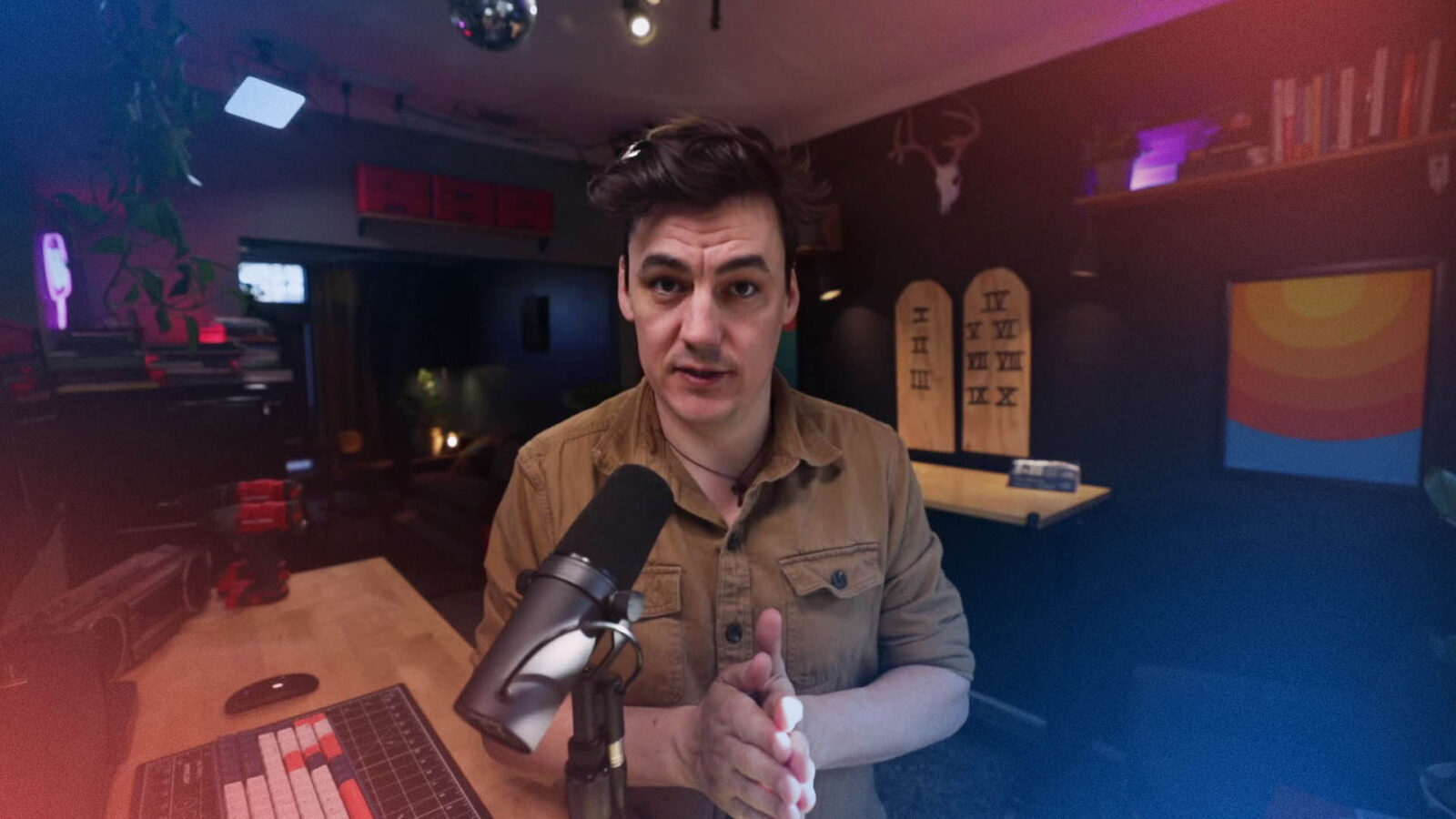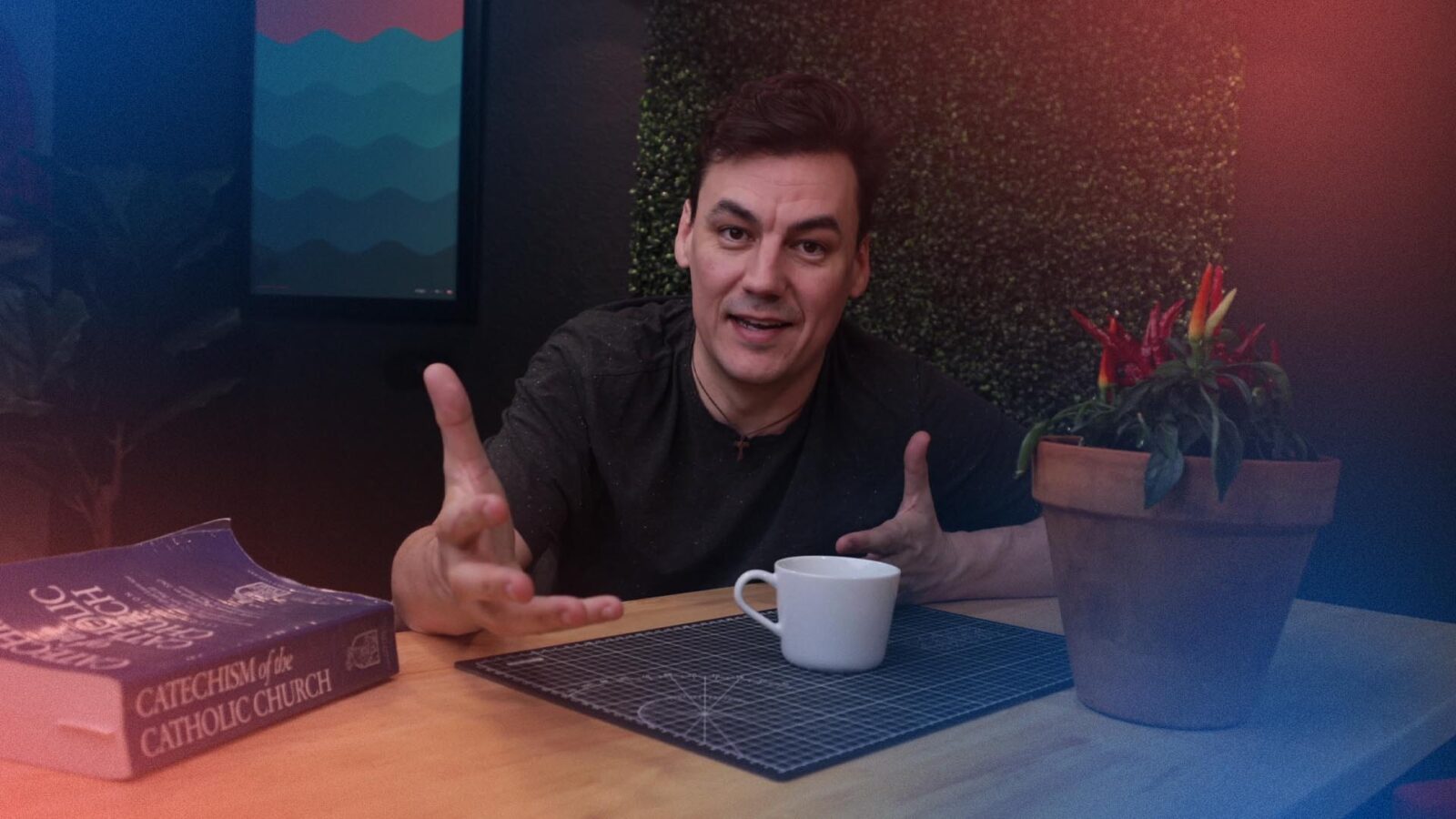Proclamation
What’s in a name?

The Creed is a statement packed full of meaning and mystery. Let’s talk about what it is and how it can affect your life.
Proclamation

Explanation

Podcast

NASA Recording: Roger, we copy. A pretty good little jump. Houston. Uh, this Neil radio check, Neil. This is Houston loud and clear break break buzz. This is Houston. Uh, radio check and verify TV circuit breaker in. Okay, Neil, we can see you coming down the ladder. Now you’re coming. It’s one small step for man, one giant leap for mankind.
Edmund: On May 25th, 1961, President John F. Kennedy made a speech where he said it was the United State’s plan to put a man on the moon before 1970.
President John F. Kennedy: “We choose to go to the moon in this decade and do the other things, not because they are easy, but because they are hard.”
Edmund: This simple idea, a goal that had never been achieved before, united a nation and NASA to work harder than ever at this singular focus. My helmet is coming up into my face. There’s this story that JFK was touring one of the NASA facilities after hours. When he saw a janitor who was there, sweeping the floors, he walked up to the man and said, “What is it that you do here?” And the man said, “I’m helping put a man on the moon.” “Put a man on the moon” became a rallying cry, in a way, a mission statement that unified NASA and a country. Every single person at NASA, from the engineers, all the way down to the janitors, all knew that their work contributed to the singular mission to put a man on the moon. But do mission statements actually work? Do they help companies and organizations thrive? And if mission statements are effective, could we apply mission statements to our everyday lives? Did we get the shot? Okay, cool.
So we brought in business expert Michael Hoffman to talk about mission statements. Michael, do mission statements matter?
Michael Hoffman: Only if you want to get something done. It should bring clarity to anybody in an organization as to what we’re about. This is what we believe, this is who we are and let your behaviors reflect that.
Edmund: What is your business mission statement?
Michael Hoffman: To make as much money as possible. And if anybody’s not working towards that goal, you’re fired.
Edmund: Business. In my extensive business research, I found that three qualities make a mission statement most effective. First, a mission statement unifies a group of people. They rally around a common language and cause that’s stated clearly in the mission statement, which brings us to: two, mission statements are memorable. They’re easy to pass along to other people. They stick in your brain. And that leads us to: three, mission statements, have practical impact. You can read a mission statement and understand how you can apply that to your work or to your job, your life, etc. A mission statement is shorthand for why an organization exists. In a more powerful way than mission statements, the Church has used short formulas of faith to pass on the faith to other people. It says in the Catechism 186-187, “From the beginning, the apostolic Church expressed and handed on her faith in a brief formula for all. But already early on, the Church also wanted to gather the essential elements of her faith into organic and articulated summaries, intended especially for candidates for baptism. Such syntheses are called “professions of faith” since they summarize the faith that Christians profess. They are called “creeds” on account of what is usually their first word in Latin: credo (I believe). They are also called “symbols of faith.”
So let’s talk a little bit about the symbol of faith. The Church has used creeds to unify believers around the common language of faith and the common beliefs. It can be intimidating when you think about all the different things that the Church teaches and in the early days of the Church, how would you know that any particular church you went to taught the faith that you believed? This is why the creed is known as a symbol of faith. The Greek word symbolon means “a half broken object” or “a seal that is used to verify someone’s identity” or say the authenticity of a letter or a message. You’d take the symbolon and you’d break it in half.
You’d take the symbolon and you’d very carefully break it in half. What if I just did this? Now that’s not exactly in half, but that is the best we can do with this plate. And it works perfectly. So then what you’d have is two parts of the seal. So if you had one half and the messenger had the other half, you could verify the authenticity of the message because the two pieces would fit together, two pieces of the symbolon would fit together.
So when you go to a church and they recite the same creed as you do, you know that you’re with the true Church. So at this point, you’re probably thinking, wait a minute, hold on, Edmund. The Apostles Creed is not that short. I mean, isn’t it supposed to fit on a t-shirt? And you’re right. So the Apostles Creed isn’t just one pithy sentence, but how about this?
I can show you a way that makes it easier to memorize, if we break it up into three parts. The creed is basically split into three parts. I believe in God, the Father and in Jesus Christ, his Son and in the Holy Spirit. Father, I believe in the Son. And I believe in the Holy Spirit. In a way, the Sign of the Cross is a mini creed. In the name of the Father and the Son and the Holy Spirit. That’s the way we begin and end every prayer. So today you can go to any Catholic Church in the world and the people there are going to profess and believe the same creed. It’s the same creed, but in different languages. The creed is the summary of everything we believe. And it’s more powerful than a mission statement. It should inform everything we do. And the creed unifies us as the body of believers.
This creed has been passed down for centuries and it should have huge implications on our everyday life. The creed can’t just be empty words. Our belief in the creed changes everything. It can help unify us as a Church and it can help us pass on the faith to others in an easy way. It also is a short prayer for us to pray and ask God for more faith in this creed, and to ask God for the grace, for this creed and belief in it to impact our daily lives. I wanna encourage you to try praying with the creed. Take one line of the creed and pray with it every day for a week before moving on to the next line. If there are parts of that line of the creed that don’t make sense to you, the Catechism will help you unpack the words of the creed. The very first pillar of the four pillars of the Catechism does exactly this. It dives into every line of the creed and unpacks it. So you’ll never look at the creed or pray the creed the same way ever again. And as always, we should do all of this in the name of the Father and of the Son and of the Holy Spirit. Amen.
Emily: Hi, my name is Emily.
Edmund: And my name’s Edmund. Thanks for watching that video.
Emily: We made this video because we believe the Catechism of the Catholic Church is not just a collection of ideas, a set of rules or a textbook.
Edmund: Yeah, we believe the Catechism is a faithful echo of a God desires to reveal himself to us.
Emily: Real + True makes videos and other content to retransform this echo into a living voice for the modern world.
Edmund: And right now all of these videos are made available for free in multiple languages, English, French, Spanish, and Portuguese. And right now we’re trying to go through the entire first pillar of the Catechism.
Emily: We hope to make even more videos to cover the entire Catechism, and we wanna do it in even more languages and continue to make this resource available for free to everyone.
Edmund: Yeah. So you can help us accomplish that by giving a one-time gift or a monthly donation. Every little bit helps us accomplish this goal.
Emily: You can also show your support by sharing this video, subscribing to see more of our content. And I invite you to check out realtrue.org to learn all the ways you can support this mission. Thank you.
Edmund: Thanks.
U.30 — CCC 1716-1729

The catechism says the beatitudes are the heart of Jesus’ preaching that they reveal the goal of human existence.
WatchU.29 — CCC 2052-2082

While the Ten Commandments state grave obligations, they also imply other ways we should live out God’s law in less grave matters.
WatchU.28 — CCC 1949-2051

We are called to do our best, and rely on God for the rest. Jesus gives us the Holy Spirit, and the sacraments to give us strength.
WatchU.27 — CCC 1803-1948

“Trying harder next time” won’t keep you from sinning. You need to cooperate with grace!
WatchBy submitting this form you consent to receive emails about Real+True and other projects of OSV.